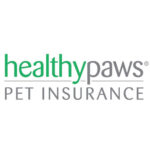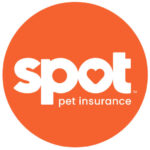Best Pet Insurance For Pugs In January, 2025
In my informed opinion, Healthy Paws stands out as the top choice for pet insurance for Pugs.
We’ve saved shoppers an average of $350 per year on their pet insurance.
For Pug owners, their well-being and health hold significant importance. Given their purebred lineage, Pugs are more predisposed to hereditary health challenges compared to mixed-breed counterparts. Alarmingly, a notable 80% of pet owners are financially unprepared to manage an unforeseen $500 veterinary expense. This is precisely where pet insurance steps in, providing a financial safety net.
Within this assessment, we will delve into the leading pet insurance options for Pugs, guiding you in finding the policy that aligns best with your requirements. Similar to personal health coverage, pet insurance offers better treatment choices while capping potential your expenses. Nevertheless, unlike personal health insurance, the cost remains reasonable and accessible.
Best Pet Insurance Companies For Pugs 2025
Different pet insurance companies that cater to Pugs have things in common that look after your pet's well-being and help with financial concerns. But they also have differences. So, what works for your neighbor's pet might not be the best for yours.
Now, let's check out the top pet insurance companies for Pugs:



Comparison Of The Best Pet Insurance Companies For Pugs
From our analysis of the best pet insurance choices for Pugs covered earlier, it's evident that numerous reputable companies are competing for the leading positions. You can also observe that each company possesses its unique advantages. Here's a quick overview to provide you with a glimpse into each insurer:
| Waiting Period | Reimbursement % | Overall Rating | Benefit Limit | Best For | Get A Quote | |
|---|---|---|---|---|---|---|
| Pumpkin |
14 days accidents/illnesses |
90% |
|
$10,000 , $20,000 or unlimited |
Older Dogs |
Instant Quote |
| Healthy Paws |
15 days accidents/illnesses |
70%, 80%, 90% |
|
Unlimited annual and lifetime |
Overall |
Instant Quote |
| ManyPets |
15 days accidents/illnesses |
70% or 80% |
|
Unlimited annual and lifetime |
Puppies |
Instant Quote |
| Lemonade |
2 days accidents, 14 days illnesses |
70%, 80%, 90% |
|
$5,000 to $100,000 annually |
Cheap |
Instant Quote |
| Spot |
14 days accidents/illnesses |
70%, 80%, 90% |
|
$2,500 to unlimited |
Multiple Pets |
Instant Quote |
Our Methodology
The assessments and resulting ratings were formulated by examining the websites of each insurer, analyzing customer reviews, consulting other review platforms, and drawing from personal experiences of having previously bought and utilized pet insurance.
Quotes Analyzed
Years Of Industry Experience
Brands Reviewed
Research Hours
Detailed Reviews Of The Best Pug Insurance Companies
Best Overall
Key Statistics
Why We Like Them
⇅Healthy Paws stands out as the best choice for pet insurance due to its absence of claim payout ceilings, per-incident maximums, or restrictions. While it might require a higher investment, this choice proves its value by eliminating the need to make tough decisions based on policy constraints.
Healthy Paws has a straightforward policy, which doesn’t have expensive extras, and it extends the flexibility to consult any licensed veterinarian. The process of filing claims is made effortless via their mobile app or website, with most claims being resolved within a mere two days.
Benefits & Drawbacks
⇅- Unlimited annual and lifetime reimbursements
- Quick processing of the majority of claims within 48 hours
- 30-day money-back assurance
- Potential for direct veterinarian payments ✓
- Absence of routine wellness coverage choice ✘
Runner-Up For Best Overall
Key Statistics
Why We Like Them
⇅Lemonade stands out as the most budget-friendly pet insurance option for Pugs. While its coverage limits are comparable to those of other reviewed companies, they differ from the limitless scope offered by Healthy Paws. Lemonade’s coverage spans from $5,000 to $100,000 per year, with the premium rising in tandem with your chosen limit.
The standard policy provided by Lemonade includes accidents and illnesses, spanning from cancer and heart disease to skin issues, fractures, and the prevalent concern of hip dysplasia in older Pugs. Like other insurers, Lemonade doesn’t provide coverage for preexisting conditions, dental problems, behavioral matters, or elective procedures.
Benefits & Drawbacks
⇅- Utilize an available wellness plan.
- Benefit from a brief two-day accident waiting period.
- Receive a 10% discount when combining pet insurance with your existing Lemonade home, renters, or car insurance. ✓
- Absence of a 24/7 pet telehealth line.
- The coverage for vet examination fees involves an additional charge.
- Regrettably, prescription food and microchipping are not covered by the policy. ✘
Best For Multiple Pets
Key Statistics
Why We Like Them
⇅Many people who own Pugs often have multiple pets due to the breed’s friendly nature. Spot acknowledges this and offers a 10% discount if you insure more than one pet with them, resulting in substantial savings.
Spot’s extra preventive care plan covers wellness needs, including an annual vet visit, a fecal test, and teeth cleaning. Some vaccinations are also part of the coverage.
Furthermore, Spot assures a 30-day money-back guarantee if the coverage or service doesn’t meet your expectations. They also provide up to 90% reimbursement on eligible vet bills and a 24/7 vet helpline. You’re free to consult any U.S.-licensed vet or specialist.
Benefits & Drawbacks
⇅- Encompasses microchipping services.
- Offers the option of a modest $100 deductible.
- Features a readily accessible 24/7 pet telehealth line. ✓
- Accidents are subject to a 14-day waiting period, unlike the 2-day waiting period observed in certain leading competitors. ✘
Best For Older Dogs
Key Statistics
Why We Like Them
⇅As Pugs grow older, they might develop genetic health problems like cruciate ligament issues and hip dysplasia that need expensive treatments. Pumpkin doesn’t make you wait for these conditions and covers vet exam fees for your senior Pug.
Pumpkin offers different coverage choices for various problems that Pugs might face, including surgeries and dental issues. You can choose from three deductibles, and they usually reimburse 90%.
Benefits & Drawbacks
⇅- Choose to enroll in an available wellness plan.
- Benefit from price reductions when insuring multiple pets.
- Enjoy a substantial 90% reimbursement for dogs and cats aged 8 weeks and older. ✓
- Regrettably, there is no provision for a 24/7 pet telehealth line.
- Unfortunately, an accident-only plan is not part of the options provided. ✘
Best For Puppies
Key Statistics
Why We Like Them
⇅ManyPets offers the best coverage for puppies. Rates remain unaffected by pre-existing conditions, and cured conditions might become eligible for coverage after an 18-month period. Moreover, unrelated conditions can still qualify for coverage.
Similar to all young dogs, Pugs in their puppy stage are susceptible to various illnesses such as poisoning, ingestion of foreign objects, and accidents arising from their exuberant energy. Ensuring coverage during their early stages significantly reduces the likelihood of encountering exclusions related to pre-existing conditions as they mature.
Benefits & Drawbacks
⇅- Accessible in over 40 states.
- Provides the choice of optional wellness plans.
- Inclusive of vet exam fees for both illness and accident-related visits. ✓
- Lacks a 24/7 pet telehealth line.
- Excludes coverage for pet behavioral therapy.
- Regrettably, alternative therapies are not within the coverage. ✘
Average Cost Of Pet Insurance For Pugs
| Company | Monthly Price | Deductible | Annual Reimbursement % | Age of Dog |
| Spot | $70 | $500 | 70% | 5 year old |
| Lemonade | $43 | $500 | 70% | 5 year old |
| Healthy Paws | $39 | $500 | 80% | 1 year old |
| Healthy Paws | $80 | $500 | 70% | 5 year old |
| Lemonade | $22 | $500 | 80% | 1 year old |
| Spot | $55 | $500 | 80% | 1 year old |
| Healthy Paws | $40 | $500 | 70% | 3 month old |
| Lemonade | $30 | $500 | 70% | 3 month old |
| Spot | $82 | $500 | 70% | 3 month old |
Average Cost Of Typical Vet Procedures
| Typical Vet Procedure | Average Cost Of Procedure |
| Annual exam | $240-600 |
| Spay or neuter surgery | $200-800 |
| Puppy vaccinations | $75-100 |
| Flea & tick prevention | $40-200 |
| Microchip | $40 |
| Teeth cleaning | $200-500 |
| Heartworm prevention | $24-120 |
Average Cost Of Emergency Vet Procedures
| Emergency Pet Procedure | Average Cost Of Procedure |
| Wound treatment & repair | $800-$1,500 |
| General consultation/exam | $100-$150 |
| Emergency surgery | $800-$2,500 |
| 1-2 day hospitalization | $600-$1,700 |
| Oxygen therapy | $500 |
| General bloodwork | $80-200 |
| X-rays | $150-$250 |
| 3-5 day hospitalization | $1,500-$3,500 |
| Ultrasound | $300-$600 |
Common Health Issues For Pugs
In the realm of purebred dogs like Pugs, breed-specific health issues are common. In some instances, particular breeders might have overlooked genetic considerations in their Pug breeding practices, leading to issues that affect the broader Pug community. Compared to other breeds, Pugs are generally more prone to genetic health problems. In this context, we will outline several prevalent health concerns often found in Pugs:
- Cancer (Oral Melanoma and Mast Cell Tumors)
- Brachycephalic Obstructive Airway Syndrome (BOAS)
- Patellar Luxation
- Hip Dysplasia and Legg-Calvé-Perthes Disease
- Corneal Ulcers, Entropion and Dry Eye
- Skin Fold Dermatitis and Infections
Is Pet Insurance Worth It For Pugs?
Pet insurance serves as a shield against unforeseen vet costs. While many pet parents cover their pet’s medical bills, a significant number of Americans can’t manage a $1500 emergency vet charge. The right pet insurance acts as a safety net. It empowers you to prioritize medical choices for your furry family member based on their well-being, not financial limitations.
The value of pet insurance depends on your expectations. If your pet is presently under treatment for a chronic ailment and you’re seeking help with treatment costs, you might be disappointed as no company in our evaluation covers preexisting conditions.
However, if you understand your policy, its coverage scope, and align it with your budget and needs, you’re more likely to view the policy as a worthwhile investment.
How To Find The Best Pet Insurance Company For You
The expenses and options offered by different pet insurance plans can vary between companies, making it challenging to select the right one. To find the best plan for your pet, keep these guidelines in mind before making your decision:
Check Whether Your Pet Is Eligible
For young puppies and kittens, getting insurance typically requires them to be at least 6 to 10 weeks old, depending on the company. Some companies might not allow first-time enrollment for senior pets, or they might limit them to accident-only coverage. However, once your pet is enrolled, most plans ensure lifelong coverage as long as you keep up with the premium payments.
Research What’s Covered
Pet insurance plans usually take care of expenses like surgery, hospital stays, and medications when your pet gets sick or injured. However, there are specific things that some companies might charge extra for or not cover at all. Here are a few examples:
- Exam fees: Imagine if your dog breaks a leg. While some plans might pay for X-rays, surgery, and pain meds, they might not cover the vet’s checkup fee.
- Alternative treatments and rehab: Some plans include coverage for things like acupuncture and physical therapy in their regular plans, while others might ask for an extra charge.
- Behavioral therapies: Not all plans cover vet treatment for behavioral problems like aggression.
- Prescription food: Certain plans might exclude food or supplements, even if the vet prescribes them for a covered issue.
- Dental care: Pet insurance plans differ on dental health. Some might not cover problems like gum disease or tooth issues. Alternatively, coverage might depend on recent teeth cleaning. Some wellness add-ons might pay for cleanings. Remember, pet insurance usually doesn’t cover pre-existing conditions, cosmetic procedures, or breeding costs.
Decide How Much Coverage You Want
Most pet insurance plans set a limit on how much they pay out each year, but a few don’t have this cap. It’s up to you to pick the amount that makes you feel secure about covering vet bills.
If your dog or cat is healthy, you might go years without needing to pay for more than regular checkups. But unexpected surgeries or major illnesses could result in bills that go into thousands of dollars.
Understand Reimbursements And Deductibles
In the world of pet insurance, most plans will pay back a part of your vet expenses. Usually, you can pick a level of reimbursement when you buy the plan, like 70%, 80%, or 90%.
On the other hand, some plans stick to a set fee for specific treatments, which might be less than what your vet charges. This means you’ll need to cover the extra cost.
Almost all plans also have a deductible—this is what you pay upfront before the plan starts covering costs. You usually get to choose from different deductibles, like $100, $250, or more. Some plans count the deductible for each problem your pet has, while most just need you to pay it once a year.
Generally, if you go for a lower deductible and higher reimbursement, your premiums will be higher. But if you choose a higher deductible and lower reimbursement, you’ll pay less in premiums.
Check Waiting Periods
Most plans come with brief waiting periods after you get the policy for full accident and illness coverage, usually about 14 days. During this time, the plan won’t pay for treatments.
For certain issues like cruciate ligament injuries, some plans have longer waiting periods. These ligaments help stabilize the knee, and injuries to them can affect a dog’s movement.
Examine Extra Costs
Some pet insurance companies offer coverage for regular services like wellness check-ups and vaccinations. While this might seem appealing, it’s important to consider if the added cost is really worth it. Compare the yearly cost of the wellness insurance plan to what you would normally pay for those services on your own each year. Make sure to carefully review the specifics, as what’s considered “wellness” can differ among pet insurance providers.
Compare Quotes
Insurance expenses differ based on the provider and the level of coverage. Certain pet insurance companies extend discounts; you could potentially economize by insuring multiple pets. However, a discount alone doesn’t ensure that a plan is the optimal choice.
The sole method to locate the most suitable insurance for your pet involves delving into the specifics and collecting quotes for various plans. Ensure you’re making an impartial comparison, considering similar coverage levels, deductibles, and reimbursement limits.
Factors That Impact Cost Of Your Pet Insurance Policy
Much like your health insurance, the cost of your pet insurance can vary due to specific factors, such as:
- Location: Pet insurance companies take into account the local costs of veterinary care when determining your policy’s price.
- Pet’s Age: Older animals are more prone to health issues, resulting in higher premiums.
- Pet’s Breed: Certain breeds are more susceptible to health problems. For instance, breeds like bulldogs and Boston terriers often experience breathing difficulties, while larger breeds like Pugs have a higher likelihood of hip dysplasia. These potential concerns can impact the cost of your pet insurance plan.
- Deductibles, Coinsurance, and Coverage Limits: The less you’re willing to personally pay for your pet’s care, the higher your insurance premium becomes. For example, choosing a $100 deductible instead of a $500 one leads to faster reimbursements for your pet’s care, though with higher premiums.
Information About Pugs
Celebrated for their irresistible charm and distinctive appearance, Pugs are adored as a cherished and captivating dog breed. Originating from China, they were initially bred as companions, known for their affectionate demeanor and charming character. Sporting a distinctive curled tail and wrinkled face, Pugs come in various coat colors, with the classic fawn and black being particularly iconic.
Playful and sociable, Pugs thrive in cozy settings and relish indoor activities. Their delightful personality and adaptability make them wonderful companions for a variety of households. Building strong bonds with their owners, Pugs showcase both playfulness and loyalty. Revered for their joyful nature and endearing quirks, Pugs continue to capture hearts around the globe.
Looking For Pet Insurance For Other Dog Breeds?
FAQs
Is pet insurance cheaper for purebred dogs?
Due to the genetic vulnerabilities that often affect purebred dogs, leading to expensive health issues, their insurance coverage generally carries a higher cost compared to mixed-breed dogs.
What insurance do you need for a dog?
Having a certain level of pet insurance is advisable for dog owners. This ensures that they can manage veterinary expenses, thereby maintaining their dog’s health and well-being.
What is the average cost of owning a Pug?
In the first year, the initial expenses total about $3,000, covering vaccinations, food, grooming, and insurance. However, the yearly costs in the subsequent years decrease to approximately $1,900.
Sources
⇅Related Content
Do All Vets Take Pet Insurance? What Is A Deductible In Pet Insurance? How Does Pet Insurance Work?
Pet Insurance In Your Area
Best Pet Insurance In Florida Best Pet Insurance In Ohio Best Pet Insurance In Colorado
